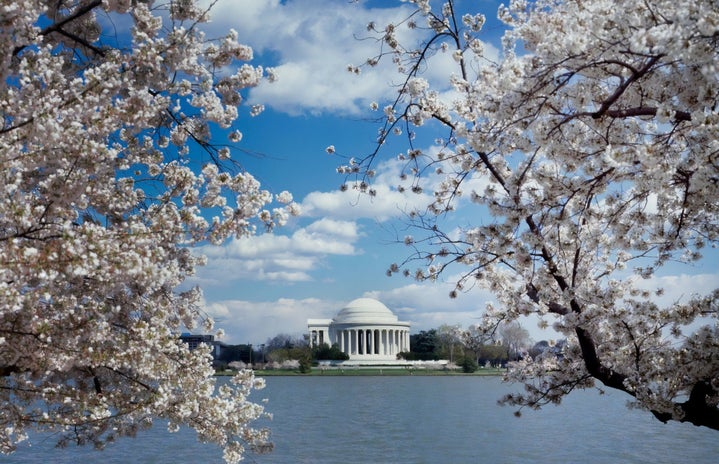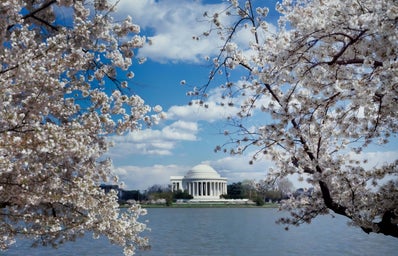During this Women’s History Month, it’s important to celebrate not just women but countless women across the country that are empowering others around the world. Indigenous women are constantly shaping our country in several disciplines, including politics, art, activism, and the media. These women not only inspire me but also other women across the globe, and I hope after reading this article they will also begin to inspire you.
This moment in politics has been a recording-breaking time for Indigenous women. A record number of Native American women were elected to Congress. Democrats Sharice Davids and Deb Haaland were reelected while Republican Yvette Herrell was elected for the first time. Deb Haaland, a Laguna Pueblo member from New Mexico, and Sharice Davids, from Ho-Chunk Nation in Kansas were the first Native American women elected to Congress in 2018. Yvette Herrell, who is Cherokee from New Mexico joined the two women in the House of Representatives, which made New Mexico the first state to have two Indigenous women as congressional delegates. Not only were records broken in Congress, but Native American women made up 2.6% of all women running for Congress this year which is the highest percentage in history. Indigenous women are also breaking records on a state level as Stephanie Byers, a Chickasaw woman, became Kansas’s first transgender member in the state’s House of Representatives. Christina Haswood, a Navajo Nation member, became the youngest member in Kansas state legislature at 26.
Not only are Indigenous women excelling in politics, but they are also excelling in art and writing. Joy Harjo of the Muscogee Creek Nation became the first Native American Poet Laureate in United States history. When discussing her win, Harjo highlighted the lack of visibility for Indigenous women in this country as she said that “it’s such an honor for Native people in this country when we have been so disappeared and disregarded.” Harjo has authored many books on poetry, including In Mad Love and War, which won her the American Book Award. Harjo used poetry as a beacon of hope which guided her through her father’s alcoholism, poverty, abusive stepfather, teen pregnancy, and failed first marriage. In a Time interview, Harjo discussed her inspiration for writing when she said that “we were dispersed Americans, totally disregarded, and I felt our voices needed to be heard. I started writing poetry out of a sense of needing to speak not only for me but all Native American women.” Harjo’s work and perseverance through art should be an inspiration to everyone and shows the power Indigenous women have to not only affect us all but also to provide a voice to women that our country’s oppressive systems and history try to silence.
Indigenous women are taking up space in the music and film industries in a powerful way. Princess Nokia, born Destiny Frasqueri, is a musician known for her popular songs such as “I like him” and “Tomboy.” In a Teen Vogue interview, Frasqueri spoke about the power of her Indigenous heritage when she said “being an Afro-Indigenous woman is a large part of me, to the core. I celebrate it more than anything. We are trying to heal from that colonization, that slavery that our country suffered from. How does one heal 500 years of whitewashing, and rape, genocide, disease, suffering? One claims the beauty of their ancestors. Young people are the fearless voices of our ancestors.” Princess Nokia’s words and music have empowered countless women and her visibility and representation in the music industry has been empowering for the Afro-Indigenous community. In the film industry, there are many moving films produced or directed by Indigenous women for Indigenous women. Filmmaker Katsitsionni Fox of the Mohawk tribe directed and produced the film “Without a Whisper: Konnon:kwe.” Fox’s film focused on the hidden history of the Indigenous women’s influence on the Women’s Rights Movement and uncovers the resilience and power of Indigenous women. Jadia Grey Eagle serves as a producer for the film “Sisters Rising,” which follows six Native American women who fight against the prevalence of sexual assault facing Native women in this country. Federal studies have revealed that Native American women are 2.5 times more likely to be sexually assaulted than all other women, and one and three Native women report being raped. This film shows how cinema can be used as a call to action as it not only addresses the clear need for action surrounding the violence against Native Women but shows the power of Indigenous women working together.
Sources:https://www.theguardian.com/us-news/2020/nov/04/native-american-women-elected-congress-record-number
https://time.com/5658443/joy-harjo-poet-interview/
https://www.teenvogue.com/story/princess-nokia-fresh-finds
https://indiancountrytoday.com/lifestyle/four-new-indigenous-films-by-and-about-native-women



